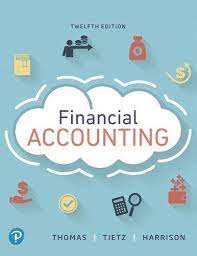Course Summary:
- Course offering includes computer concepts and the use of information technology in organizations.
- Includes the basics of Windows Operating System and Microsoft Office Suite as applied to basic uses of word processing, spreadsheets, databases, and presentation software, and file and folder management, introduction to internet, WWW and web browser.
- Course offerings provide opportunities for students to learn emerging technologies and upgrade their technical skills.
Course Objective:
- The purpose of this course is to insinuate to students the basic yet so important computer knowledge which will be useful in all aspects in future.
- The course provides information technology literacy and basic skills training for learners with limited experience.
- Course learning outcomes focus on skill development related to basic computer operations and information technology.
Course outcomes:
CO1: Bridge the fundamental concepts of computers with the present level of knowledge of the students.
CO2: Familiarize operating systems, peripheral devices, networking and internet to get be motivated themselves in-tune with current trends
CO3: Acquire theoretical knowledge to design/evaluate/solve various computational problems by understanding MS Office and other products
CO4: Become innovative to adopt to the industry needs
CO5: Imbibe ethical, moral and social values in personal and social life leading to highly cultured and civilized personality
PRE-REQUISITES:
▪ Basics handling of System

- Teacher: MAHANTA CHAUHAN
Course Description:
The course addresses the English language needs of the students at the undergraduate level. The focus will be upon five categories: Prose, Poetry, Vocabulary, Soft Skills, and Grammar. In addition to these, the last two units focus on developing the speaking skills of students. Overall the course will focus upon the critical thinking faculties of the students concerning academic, linguistic, political, literary, and ethical concepts.
The syllabus has been designed to develop the linguistic and
communicative competence of undergraduate students. The teachers also ask
comprehension questions to stimulate discussion and based on the discussions
the students are made to write short paragraphs /essays and participate in
group discussions.
Course Outcomes:
The students will be able to:
CO 1. Read and interpret and analyze the implicit and explicit layers of meaning embedded in a poem.
CO 2. Identify poetic devices and the uncommon use of language in poetry.
CO 3. Become more empathetic and question the various forms of discrimination that exist in society based upon caste, race, gender, and culture, etc.
CO 4. Engage enlightenment values (liberty, equality, and fraternity) and the idea of the secular nation versus various groups divided on the basis of region, caste, creed, and language.
CO 5. Understand the need for English to be adapted to the local cultural contexts of India.
CO 6. Learn and use nouns, pronouns, adjectives, and articles correctly and efficiently.
CO7. Develop better writing skills and become adept in organizing one’s thoughts and ideas to write essays.
- Teacher: Dr Chris Lenina Peters

- Teacher: PAVITRAMBIKA MANGARI
- Teacher: HARINI PAGADALA
Course Summary:
The basic fundaments of computers through applications of information technology which enriches the knowledge of modern-day students of the evolution of technology.
Course Objective:
To understand the basic concepts and terminology of information technology.
Course Outcome:
CO1: The student will know the architecture of a computer, general features, and generations of computers.
CO2: Different hardware components and their role help the student understand the functioning of a computer.
CO3: Learning about data storage systems help students know the capacity and range of different storage devices for safe storage, transfer, and retrieval of data.
CO4: The evolution of programming languages and their developments gives an understanding of problem-solving in different platforms.
CO5: Students learn about different software and operating systems that satisfy user concerns.
CO6: Recognize the trends in Information Communication Technology
CO7: Data communication and networking help students share data with reduced expenses and improved efficiency.
CO8: Use Microsoft Office programs to create personal, academic and business documents.
- Teacher: JERUSHA SHALINI VASKA
Course Description:
Financial Accounting 1 is a 5 credit course with 65 sessions.
Course Objective:
This course is intended to introduce the basic theory, concepts and practice of financial accounting and to enable students to prepare the financial statements of sole trading business organisations.
Course Outcomes:
CO1: Know about importance of accounting in business, various branches of accounting and understand the terminologies used in business
CO2: understand the principles of accounting and method of recording, Journalising posting to ledgers and preparation of financial statements
CO3: know the method of preparing various subsidiary books
CO4: Know the reasons for disagreement between Cash book and pass book and also to reconcile them.
CO5: Know the importance of cash and non cash transactions types of errors that occur while recording and preparing financial statements
CO5: Know the causes for disagreement of trial balance and method of rectifying them
CO7: understand and differentiate between Capital and revenue items and its treatment
CO8: Know the difference between direct and indirect expenses, preparation of financial statements Trading account Profit and Loss account and Balance Sheet.

- Teacher: DURGA VAIDEHI G